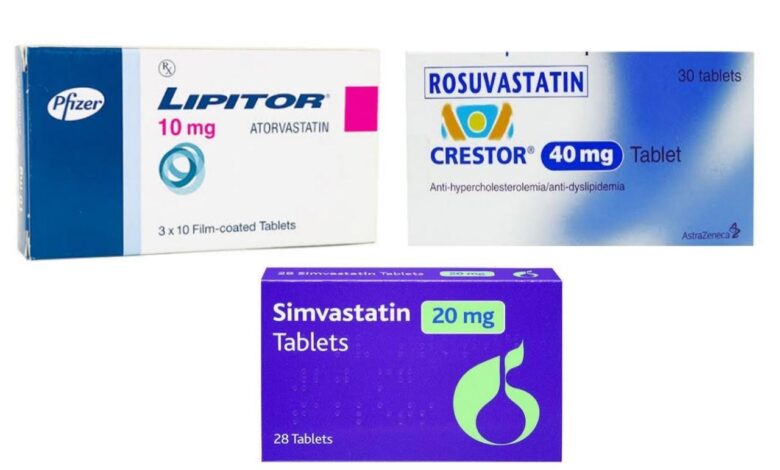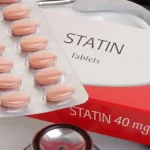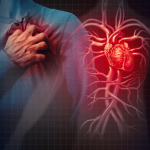What Happens If You Stop Taking Statins?

Medication compliance or adherence refers to the degree or extent of conformity to the recommendations about day-to-day treatment by the provider with respect to the timing, dosage, and frequency. It may be defined as the extent to which a patient acts in accordance with the prescribed interval, and dose of a dosing regimen.
Adherence to therapies is a primary determinant of treatment success. Failure to adhere to the prescribed regimen is a serious problem that not only affects the patient but also the health care system. Medication non-adherence in patients leads to substantial worsening of disease, death, and increased health care costs.
What are statins?
Statins refer to a group of medications used to treat high cholesterol. They work by decreasing the levels of cholesterol in your blood, especially low-density lipoprotein (LDL) or “bad” cholesterol.
People with high LDL cholesterol are at increased risk of developing cardiovascular disease. With this condition, cholesterol builds up in your arteries and can lead to angina, heart attack, or stroke. So, statins can be important in reducing these risks.
More than 200 million people around the world take statin drugs for their heart health. Shifting ideas about the risks and benefits of statins over the years, however, have left some new patients confused about whether these drugs are right—or safe—for them.
How statins work
Statins help lower low-density lipoprotein (LDL) cholesterol, also known as “bad” cholesterol, in the blood. They draw cholesterol out of plaque and stabilize plaque, Blaha says. Plaque is a waxy substance consisting mainly of cholesterol deposits that can build up within the walls of the arteries, interfering with blood flow to and from the heart and leading to heart attack and stroke.
Early on, plaque build-up can be controlled by healthy lifestyle choices, such as switching to a heart-healthy diet, exercising, and not smoking. If those efforts are unsuccessful over time, doctors will introduce treatment with statins to benefit the arteries and prevent further damage.
Types of statins
Statins are available under a variety of generic and brand names, including:
• atorvastatin (Lipitor, Torvast)
• fluvastatin (Lescol)
• lovastatin (Mevacor, Altocor, Altoprev)
• pitavastatin (Livalo, Pitava)
• pravastatin (Pravachol, Selektine)
• rosuvastatin (Crestor)
• simvastatin (Lipex, Zocor)
Some combination medications also contain statins. Among them are:
• amlodipine/atorvastatin (Caduet)
• ezetimibe/simvastatin (Vytorin)
Who gets statins?
Being prescribed statins are no longer simply a result of having poor cholesterol numbers. Instead, doctors use a variety of ways to identify high-risk patients. These include examining all of your heart-health measures (including blood pressure, blood glucose, and body-mass index) as well as the results of tests that assess plaque build-up, such as a coronary calcium scan.
What happens if you stop taking statins?
If you stop taking statins, several things may happen, and the effects can vary depending on the individual and their medical history.
Here are some possible effects of stopping statin treatment:
1. Increased Cholesterol Levels: Statins are effective in reducing cholesterol levels, particularly LDL (low-density lipoprotein) cholesterol, which is often referred to as “bad” cholesterol. Stopping statin treatment can lead to an increase in cholesterol levels, which may increase the risk of developing cardiovascular disease.
2. Increased Risk of Cardiovascular Disease: High cholesterol levels are a known risk factor for cardiovascular disease, and stopping statin treatment can increase the risk of developing heart disease, stroke, and other cardiovascular diseases.
3. Increased Risk of Cardiovascular Events: If you stop taking statins, there is an increased risk of experiencing a cardiovascular event, such as a heart attack or stroke. This is because statins have been shown to reduce the risk of cardiovascular events in people with high cholesterol levels.
4. Potential Withdrawal Symptoms: Stopping statins abruptly can sometimes cause withdrawal symptoms, such as muscle pain, cramps, and weakness. These symptoms can be temporary and usually resolve within a few weeks.
5. Reversal of Benefits: If you have been taking statins for an extended period, you may have experienced some benefits, such as a reduced risk of cardiovascular disease. Stopping statins can reverse these benefits and increase the risk of developing cardiovascular disease.
Even after you stop taking a statin, it can take several days before it is completely eliminated from your body depending on the dose. It is important to note that the effects of stopping statins can vary depending on the individual, their medical history, and the duration of statin treatment. Some people may experience significant changes in their cholesterol levels and cardiovascular risk, while others may not experience any significant effects.
If you are considering stopping statin treatment, it is important to discuss the potential risks and benefits with your healthcare provider. Your healthcare provider may recommend alternative treatments or lifestyle modifications to manage your cholesterol levels and reduce your risk of developing cardiovascular disease.
How to stop taking statins safely
If you are experiencing side effects that make it difficult for you to take your prescribed statin on schedule, discuss with your doctor about stopping it.
Your doctor may recommend other possible alternatives based on your condition. Always remember that the better statin will be the one that works best for you. Other factors may play a role in choosing a statin, such as the cost, side effects, and other medications you may be taking.





